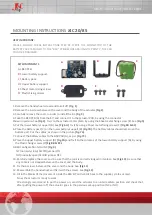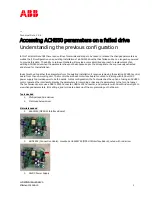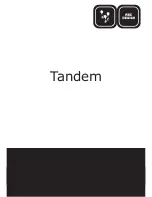
Appendix C CANopen Protocol
C_
C.2
Network Management (NMT)
The CANopen network management complies with the Master/Slave mode. Only one NMT master
can exist and other nodes are considered as slaves in a CANopen network. NMT contains three
types of services, Module control services, Error Control services and Boot-up services. Please
refer to section C.1 of the manual for more details.
C.3
PDO (Process Data Object)
PDO
The PDO provides the direct visit channel for the device application object, is used to transmit
the real-time data, and has high priority. Every byte in the PDO CAN message data list is used
to transmit the data. The rate of making use of the message is high.
The PDO is described by means of the “producer/consumer mode”. The data is transmitted from
one producer to one or many consumers. The data which can be transmitted are limited to
1-byte data to 8-byte data. After the data is transmitted by the producer, the consumer does not
need to reply to the data. Every node in the network will detect the data information transmitted
by the transmission node, and decides whether to process the data which is received.
There are two kinds of PDO services for every PDO: TxPDO and RxPDO. The PDO sent by the
producer is called PDO (TxPDO) sent by the producer device. And the PDO the consumer
receives is called PDO (RxPDO) which the consumer device receives.
Every PDO is described with two objects in the object dictionary: The PDO communication
parameters and the PDO mapping parameters.
The PDO communication parameters:
Include the COB-ID which will be used by PDO, transmission type, prohibition time and the
cycle of the counter.
The PDO mapping parameters:
Contain the object list in an object dictionary. These objects are mapped into the PDO, including
the data length (in bits). To explain the contents of the PDO, the producer and the consumer
have to understand the mapping.
The PDO transmission modes: synchronous and asynchronous
Synchronous: Synchronous periodic and synchronous non-periodic
Asynchronous: The PDO is transmitted when the data change, or it is transmitted after an event
trigger.
The transmission modes supported by PDO are as follows.
Type
PDO transmission
Periodic
Non-periodic Synchronous Asynchronous
RTR
0
X
X
1 – 240
X
X
254
X
255
X
Mode 0: The PDO information is transmitted only when the PDO data change and the
synchronous signal comes.
Modes 1~240: One piece of PDO information is transmitted every 1~240 synchronous signals.
Mode 254: The event trigger transmission is defined the manufacturer. For DVP15MC11T, the
definition is the same as mode 255.
Mode 255: PDO is transmitted when the data change, or it is transmitted after an event trigger.
All the data in the PDO has to be mapped from the object dictionary. The following is an
example of the PDO mapping.
C-7
Summary of Contents for DVP15MC11T
Page 9: ...Memo viii...
Page 15: ...DVP15MC11T Operation Manual _2 MEMO 2 4...
Page 71: ...DVP15MC11T Operation Manual _7 Memo 7 10...
Page 81: ...DVP15MC11T Operation Manual _8 Timing Chart F_TRG_CLK F_TRG_Q 8 10...
Page 158: ...Chapter 8 Logic Instructions 8_ The program 1 ASIN EN ENO In Out ASIN_EN ASIN_In Out1 8 87...
Page 249: ...DVP15MC11T Operation Manual _8 8 178...
Page 285: ...DVP15MC11T Operation Manual _8 Memo 8 214...
Page 323: ...DVP15MC11T Operation Manual 10 MEMO 10 34...
Page 549: ...DVP15MC11T Operation Manual A MEMO A 16...
















































